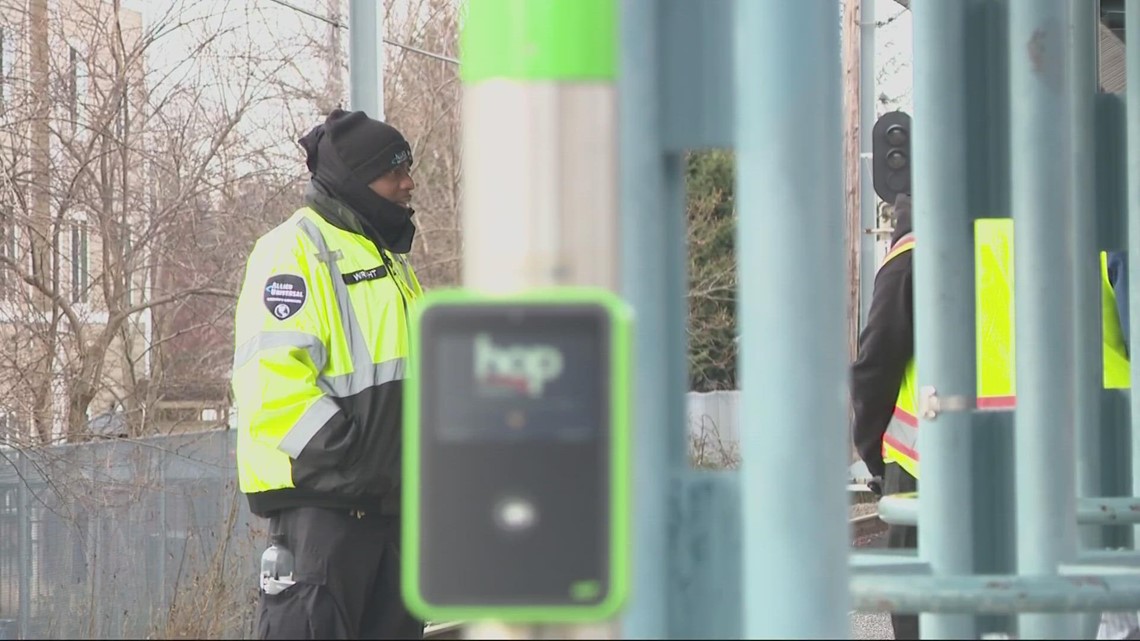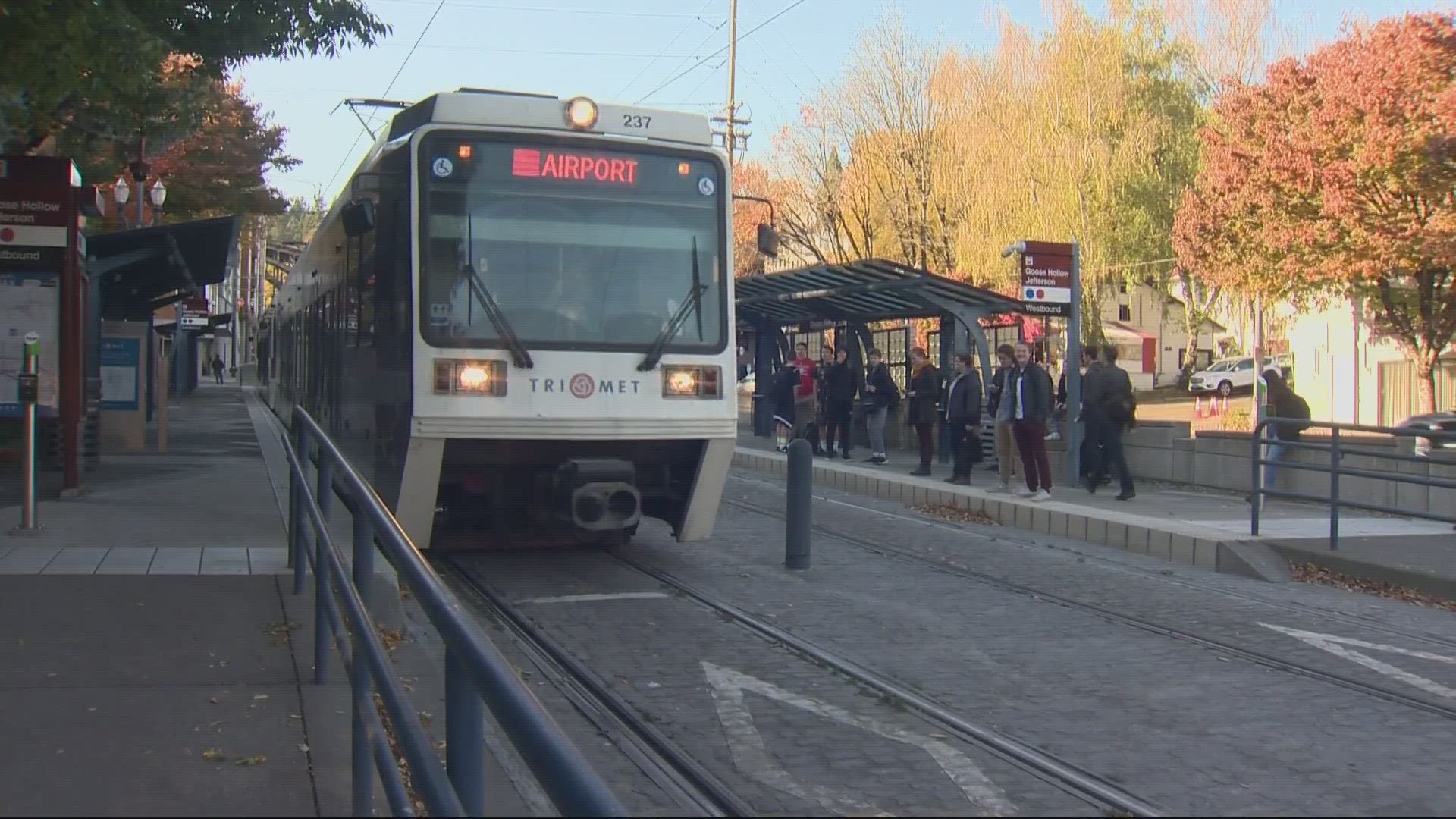PORTLAND, Ore. — TriMet's board of directors voted 6-1 Wednesday to enact a controversial plan to increase rider fares on the Portland metro area's buses and light rail trains. The new fares will take effect Jan. 1, 2024.
The plan will hike baseline fares by 30 cents, so regular two-and-a-half-hour passes will go from $2.50 to $2.80, and all-day passes will jump from $5 to $5.60. Honored Citizen and Youth tickets will go up by 15 cents to $1.40. Monthly and annual pass rates will not increase.
The board began exploring a fare hike in November 2022 and directed staff to develop a plan. The current rates have been in place since 2012, and board members said the agency needs the increase to offset inflation and rising operational costs that have built up over the past decade.


Widespread opposition
The proposed hike received significant negative feedback in the months after it was announced, and riders who spoke to KGW on Wednesday morning continued to express opposition.
"I think that keeping affordable things like public transportation as accessible as possible should be the priority," said one rider.
Portland Mayor Ted Wheeler added his voice to the opposition this week when he sent a letter to the board Monday urging the members to vote against the fare increases, citing overall financial burdens on Portlanders and the impact of the fare hike on low-income residents in particular.
"While I appreciate and understand the stated reasoning behind the proposed increases, I firmly believe many Portlanders today are being priced out," he wrote. "Although individual rate increases may seem minor, the collective impact of tax, utility rate, and fee increases by multiple regional public and private agencies results in financial hardship for many Portlanders."
TriMet held a series of open houses and informational meetings about the fare increase earlier in the year, and a March 22 report from the agency showed that 40% of survey respondents during the outreach said the fare increases would have a large impact on them, and 34% said it would have a small impact. The surveys found that 43% of respondents said they'd take fewer trips.
Summarizing the comments received, TriMet said 51% of people were against the fare proposal, 29% suggested fixing other issues first such as safety issues and existing fare enforcement, and 39% had suggestions for alternative funding plans (some comments applied to multiple categories).
Disruptions and disagreements
The opposition continued during the public comment period at the start of Wednesday's meeting, with many of those who testified asking the board to reconsider the plan.
"As someone who depends on public transit to commute and perform daily activities, I am disheartened that members of this board who are not themselves transit-dependent are considering a fair increase which has a disproportionate impact on low-income communities, communities of color and the environment," one person testified.
"[This] fare increase will pose hardship[s] for many low-income, working, poor, elderly, and disabled riders. My partner who uses transit daily for work noted how illogical it is to keep passes [at] the same rate while charging more to those that are barely scraping by who can't afford an annual or monthly pass up front," added another.
When the board began to take up the fare increase ordinance, they were immediately interrupted by shouting and chanting from members of the audience, many of whom carried signs with messages opposing the increase or transit fares in general.
The shouting continued intermittently through staff presentations and board member comments ahead of the vote, prompting multiple pauses. Board president Linda Simmons eventually led the board members to another room to continue the meeting in a virtual format.
The board members expressed a mix of support and concern ahead of the vote. Board member Kathy Wai said she'd vote no, citing concerns about the impact of the fare increase on TriMet's ridership levels. Board member LaVerne Lewis said TriMet has been resourceful about finding alternatives to fare hikes over the past 10 years.
Board member Thomas Kim said he wanted to pursue a long-term financial strategy that doesn't rely on fare revenue, but said the current increase is a necessary "band-aid" to maintain service levels.
Simmons also said that the fare increase was needed to cover service improvements, and board member Lori Bauman argued that the increase would only bring fares back in line with TriMet's original fares in 1969 when accounting for inflation.
Board member Keith Edwards said he liked the idea of fareless transit, but that it wouldn't work in his district. Board member Ozzie Gonzalez said that every other option had been stretched as far as possible, and fares need to be part of the cost conversation even if it's difficult.
"There's never a convenient time for this to happen," he said.
The board voted 6-1 in favor of the increase, with only Wai dissenting.

